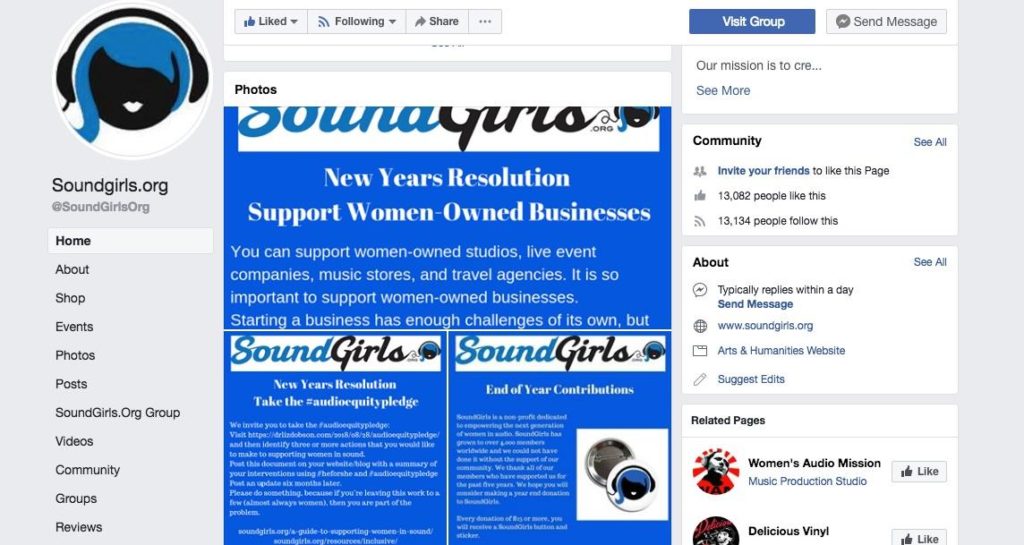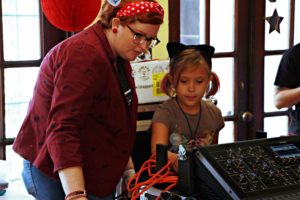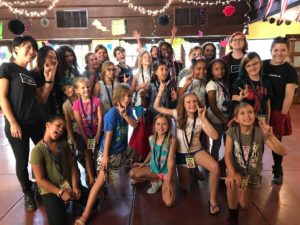Hello everyone and welcome to 2019! As a new contributor to the SoundGirls blog for 2019, allow me to briefly introduce myself.
I am a foley recordist/sound editor based in Toronto and have been working in the audio post industry for just over three years now. In late 2017, I left my salaried position at a studio to pursue a freelance career. 2018 was my first complete year as a full-time freelancer. As a recent newcomer to the freelance world, I would like to share what I’ve learned and what has helped me so far. Here are some tips I hope you find helpful if you are thinking about, or are in the process of going freelance.
FINANCES
 This is going to be the most significant subject because it is the most important – in my opinion – if you are considering going freelance. Some of us don’t like thinking about the money part. It can be stressful, but it is one of the most important things you need to do to set yourself up for success and peace of mind. Freelancing can be unsteady. You may be swamped with work for a month and then not have a single job the next. This uncertainty requires advanced planning, financially. The first thing you should ask yourself is: “How long can I survive without work on the current savings I have?” It was recommended to me to have six months of expenses saved.
This is going to be the most significant subject because it is the most important – in my opinion – if you are considering going freelance. Some of us don’t like thinking about the money part. It can be stressful, but it is one of the most important things you need to do to set yourself up for success and peace of mind. Freelancing can be unsteady. You may be swamped with work for a month and then not have a single job the next. This uncertainty requires advanced planning, financially. The first thing you should ask yourself is: “How long can I survive without work on the current savings I have?” It was recommended to me to have six months of expenses saved.
At the time I went freelance, I maybe had four. This is really up to you and what you’re comfortable with. For me, the timing was more imperative, and I felt the decision to leap into a fantastic opportunity outweighed my concerns of not having enough savings. What did help ease my peace of mind in those uncertain first few months was keeping a budget. Whether you use a simple spreadsheet (as I did) or go for software like the highly recommended YNAB, a financial tracker at the very least will help you see where your money needs to go vs. where it is going. One important thing you need to include in your budget: setting aside money for taxes.
TAXES
 The word generally comes with a winced or exhausted expression from a freelancer. Being your own boss requires you to do the not-as-fun stuff that your employers would have done in the past. This means keeping track of and filing your taxes. Now since I am in Canada, my advice may not specifically relate to your region, but I will try to be broad.
The word generally comes with a winced or exhausted expression from a freelancer. Being your own boss requires you to do the not-as-fun stuff that your employers would have done in the past. This means keeping track of and filing your taxes. Now since I am in Canada, my advice may not specifically relate to your region, but I will try to be broad.
Two pieces of advice here: 1. Keep all of your receipts for EVERYTHING and keep them organized. You will be doing yourself a huge favour if you can keep up the habit throughout the year. Buy one of those small accordion file folders and organize your receipts by category. Things like ‘work equipment,’ ‘travel fees’ are good business expense categories to file in. You should also keep a record of your invoices. (I have a digital record to save on printing.) You may also consider digitally tracking your receipts/invoices with software like Quickbooks or Wave (Free). Organizing this paperwork will make things easier to tally at tax time, and heaven forbid, keep things in order if you are ever audited. * knocks on wood *
HIRE AN ACCOUNTANT
believed I could file my taxes all on my own and I probably could have with relative success but having an experienced accountant or tax preparer handle this for you is well worth the money. (Plus you can write off their bill as a business expense.) An accountant who specializes in your industry will be extremely helpful as they will know all the ins and outs of what expenses you can write off. They will also be your best bet to save more of your money from going to taxes. I mentioned earlier that you should budget for taxes. Your accountant can help you to determine what percentage of your income you should be putting aside based on your estimated income. You should also set aside any sales tax earned (HST/GST/PST in Canada). Once again, your accountant will again be a useful resource in knowing how to file your sales tax return as well. Keep the money you set aside separate for organizational purposes and so that you don’t inadvertently spend it.As far as finances go, I’ve only just scratched the surface. I would highly recommend you research resources specifically pertaining to the region you live in – especially in regards to taxes.
Networking
It can be extremely daunting, exhausting, and anxiety-inducing for some, but networking in the audio industry is your best way to gain work and experience. This is a relatively small industry. Everyone typically knows each other – especially locally – so try and use that to your advantage. One connection can help introduce you to another.
My biggest piece of advice for networking is to try your best to be yourself and be genuine. Those who have been doing this for a while can sense when you are being fake or insincere. No one wants to work with someone with a bad attitude or an ego and those people will have a much tougher time finding work no matter how knowledgeable they are or how qualified they are for the job. Also, being a small industry, your reputation will go far. So just in general, be a good person. Also, never expect anything from someone else and appreciate whatever opportunities or experiences you may be given.
Stay Social
Freelance work can be very lonely, especially as a sound editor where you may spend your days working from home. I like to stay in touch with my other audio friends and make plans to meet up every so often. It’s helpful to have that community of like-minded people to bounce ideas off of. And they usually know some key commands you haven’t heard of yet that will change your life (I’m looking at you, OPT + CMD + V). That community can also be a great way to get more work. If we have work pop up that we are too busy to take, we often recommend or offer it to each other.

SoundGirls’ social media groups are a great way to connect to the industry.
As much as I dislike social media, it can also be a great way to stay connected to the industry, learn new things and even find work. There are tons of groups online for audio (including SoundGirls’ various social media sites) that you should definitely bookmark and keep in touch with.
I would not have been able to survive the leap to freelance if it weren’t for the amazing support I had in my professional and personal life. I was very fortunate to have great mentors share their own advice with me and I hope this information helps someone else. Freelancing certainly isn’t for everyone and that is OK! In the end, you’ll know what works for you.
If you have any other advice from your own experience or have any questions, please leave a comment or feel free to contact me.
I’m looking forward to sharing more of my experiences and what I’m learning in 2019.


 Why I Show Up & Reach Out: A Broadway Sound Mixer’s Story
Why I Show Up & Reach Out: A Broadway Sound Mixer’s Story 10 Women Loudly Pushing the Boundaries of Electronic Music
10 Women Loudly Pushing the Boundaries of Electronic Music



















